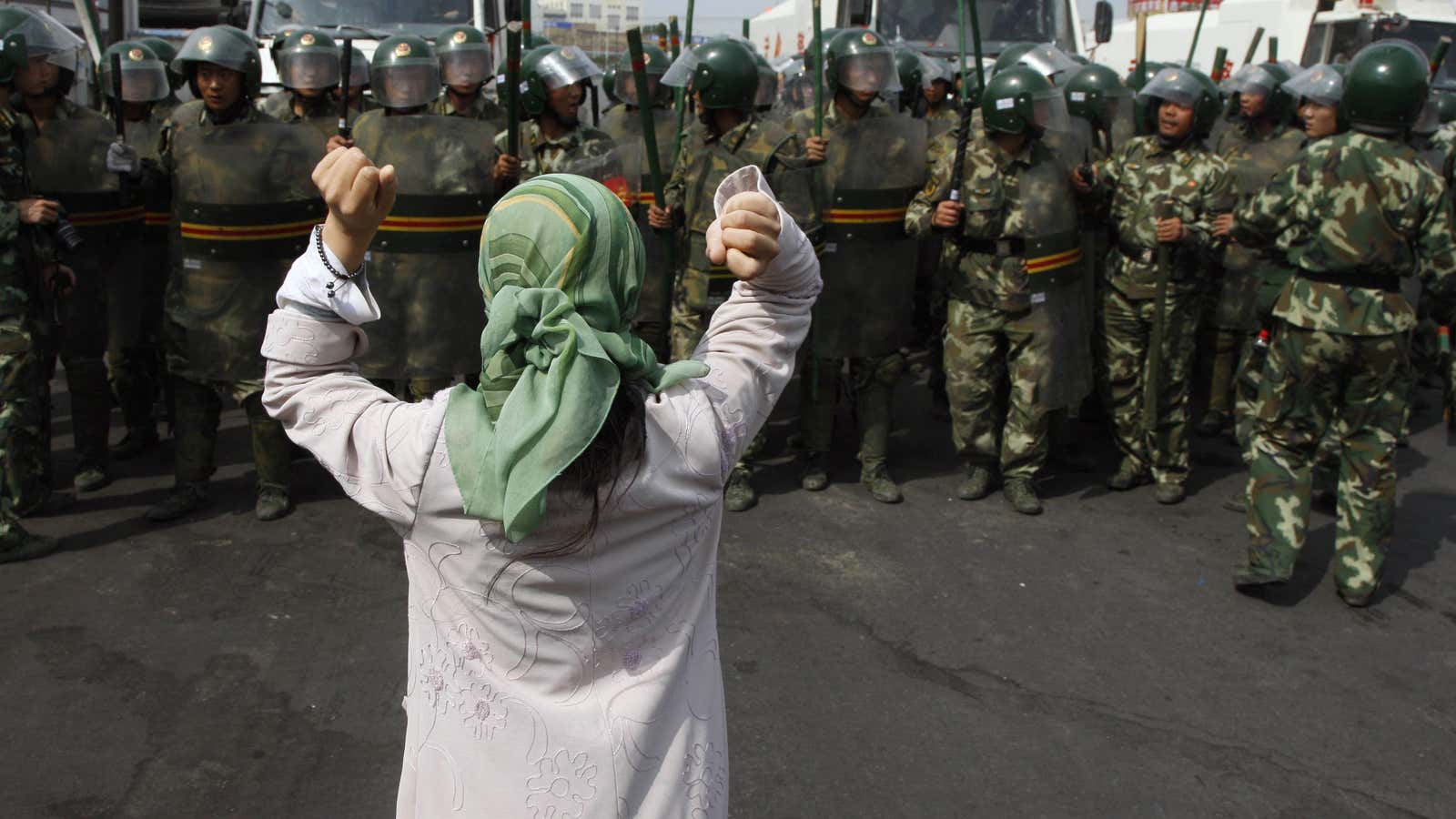China put out a policy paper today on human rights in the Muslim-heavy Xinjiang Uyghur Autonomous Region, where the Chinese government has been cracking down extensively in recent years.
The report, titled “Human Rights in Xinjiang—Development and Progress” was issued by the information office of the State Council, China’s propaganda department. The introduction to the report (link in Chinese) declares that “Before 1949, when People’s Republic of China was founded, people in Xinjiang had been suffering from foreign invasions’ influences, ripped by the feudal society and suppressed by privileged religious stratum.” Since then, it goes on to say, China has provided the foundations for “people with different ethnicities in Xinjiang to truly enjoy human rights.”
Not everyone agrees with Beijing’s definition of “human rights.” The violence-prone region’s 10 million Muslim Uyghurs say they are treated as second-class citizens, and the community has been targeted by the authorities as part of the effort to wipe out homegrown terrorists in recent years. The report hardly mentioned any of China’s ongoing crackdowns.
In March, authorities passed a new regulation that bans over a dozen behaviors that authorities deem “abnormal,” including wearing an veil or a beard, common practices by Muslims.
And in May, a report by Human Rights Watch found that local citizens in Xinjiang had been required by police to submit DNA samples for passport applications (link in Chinese) “for a nationally searchable database without oversight, transparency, or privacy protections.”
Despite all this, the government’s new report asserts that Xinjiang’s people have been able to enjoy freedom of religious belief, which it attributes to the country’s “continuous crackdowns on the infiltration of extremism in religions” (link in Chinese).
Maya Wang, a China researcher at Human Rights Watch, said the statistics and assertions in China’s white paper “are largely irrelevant or only tangential to human rights or freedoms, rather than being an honest assessment about its rights record in the minority region. It functions largely as propaganda aiming to mislead the readers.”
